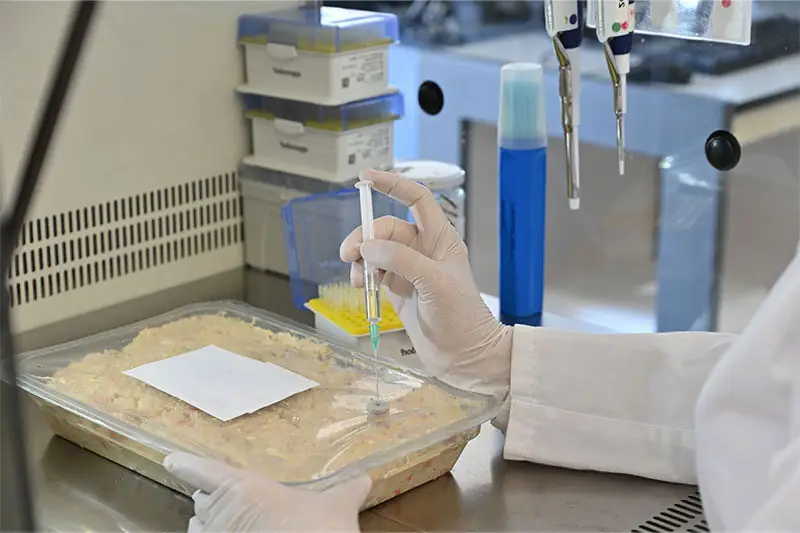The European Cosmetics Directive (76/768/EEC) requires that new cosmetic products launched on the market be previously evaluated using scientific methods recognized by regulators. From a microbiological standpoint, Challenge Test studies allow determining whether certain pathogenic or spoilage microorganisms develop.
Microbiological stability studies, Challenge Test
The ISO 11930:2012 standard sets the guidelines for conducting Challenge Test studies on cosmetic products. These studies are based on challenge tests in which pathogenic microorganisms such as Escherichia coli are introduced into the product, and their development is assessed under specific conditions.
It is important to note that prior to, or concurrently with, conducting these types of studies, it is necessary to apply the risk assessment guidelines outlined in ISO 29621:2011. This helps identify cosmetic products that pose a low risk of microbiological contamination (during production and use), and therefore do not require the application of microbiological standards. In such cases, companies would reduce costs on analyses.
Generally, the Challenge Test is used to assess the microbiological stability of a new or improved cosmetic formulation, or to evaluate the effectiveness of a new preservative, which inhibits the growth of microorganisms. Primarily, this study involves introducing various pathogenic microorganisms into the cosmetic formulation. The microorganism set is associated with contaminations that may occur during processing and storage of the products, as well as during handling by consumers.
Microbiological stability is monitored for 28 days, during which the product is subjected to unfavorable conditions, such as extreme temperatures that are unlikely to be reached at any point in the value chain. This assesses the product’s ability to prevent the development and growth of microorganisms.
As a result of the Challenge Test, we determine the microbiological stability of the product and thereby its quality. Formulations that least support the development and growth of microorganisms throughout their shelf life are identified.
Benefits derived from Challenge Test studies
- Guarantee of product stability and quality. It is a method recognised by regulators in which each phase is designed with the purpose of ensuring the reliability of the results.
- It considers the main stages of the value chain. The extreme conditions that challenge the product and the selected microorganisms cover the possibilities of contamination during production, storage, and consumer handling.
- It allows for comparing various formulations before launching them into the market. Choosing the product with greater stability, meaning the one that effectively inhibits the growth of microorganisms and has a longer shelf life, contributes to enhancing consumer confidence.
Ainia conducts microbiological stability studies as indicated in ISO 11930:2012 standard. We have microbiological analysis methods for control (ISO standards, etc.), equipment for rapid identification and typing of microorganisms, a collection of microorganisms of interest for this type of products (CRBG, ainia Biological and Genetic Resources Collection), and experience in the use as inoculum and evaluation of these microorganisms, etc. To carry out this activity at ainia, we have comprehensive laboratories and experienced personnel in this field.




